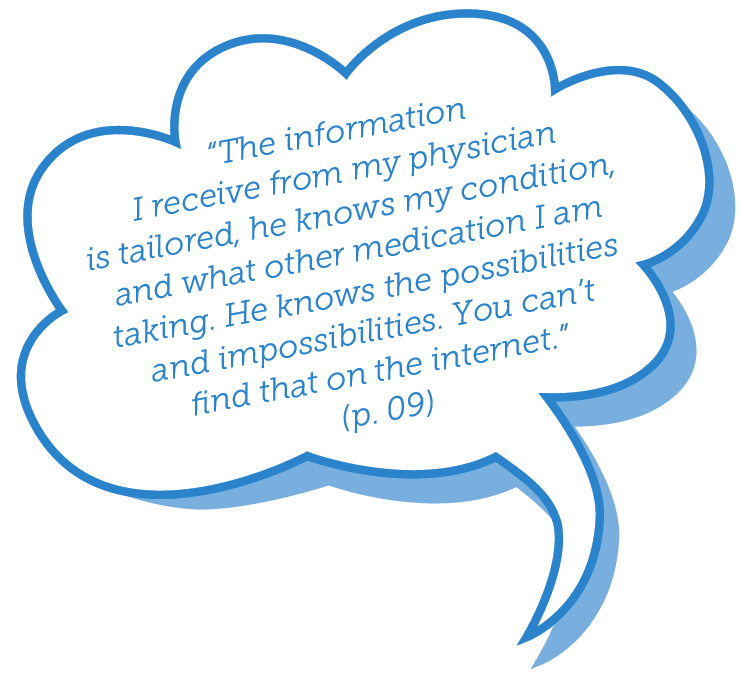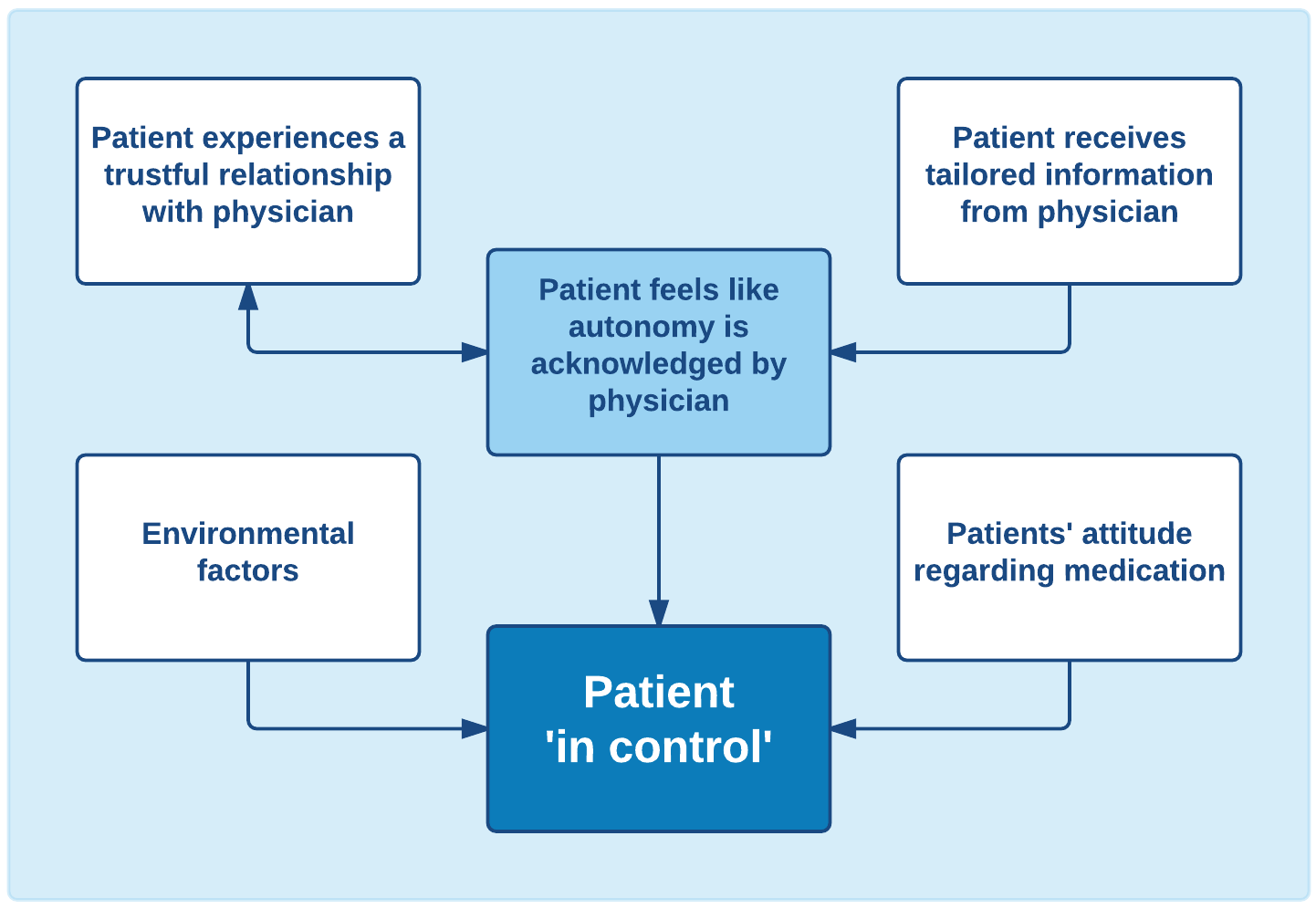


Theme
8AA Communication skills
INSTITUTION
Educational Center - University Medical Center Utrecht - Utrecht - The Netherlands
- We think that empowering patients regarding medication may reduce adverse drug events.
- Aim of this study was to identify factors involved in patient empowerment regarding medication.
Participants:
19 participants with polypharmacy and multimorbidity: 10F:9M, median age 55 (28-88), median no. of medications 8 (5-27)
Setting:
Patients from outpatient clinics of Internal Medicine and related specialties, academic hospital in the Netherlands
Data collection:
In-depth semi-structured interviews at home.
Analysis:
Grounded Theory1-3
1. Strauss A, Corbin J,. Grounded theory methodology: An overview. In: Denzin NK, Lincoln YS eds.,. Strategies of qualitative inquiry. Thousand Oaks, CA: Sage, 1998;158-83.
2. Charmaz K,. Constructing grounded theory. a practical guide through qualitative analysis. London: Sage, 2006.
3. Cutcliffe JR. Methodological issues in grounded theory. J.Adv.Nurs. 2000;31:1476-1484.
Co-authors: thank you for all your work and for mentoring me.
Scholars whom I consulted to learn more about empowerment and related topics: thank you for taking time to enthousiastically share your expertise.
Participants of this study: thanks for welcoming me into your homes, sharing your views and stories (along with tea and cookies).

- Autonomy plays a key role
- patients want their autonomy acknowledged
- patients want to be involved in shared decision making to some extent
- Tension between providing too much and too little information
To enhance patient empowerment regarding medication, teach physicians to:
- acknowledge patients' autonomy
- invest in a trustful relationship with the patient
- tailor provision of information to patients’ needs
- help patients cope with their negative attitude towards medication

 Send Email
Send Email